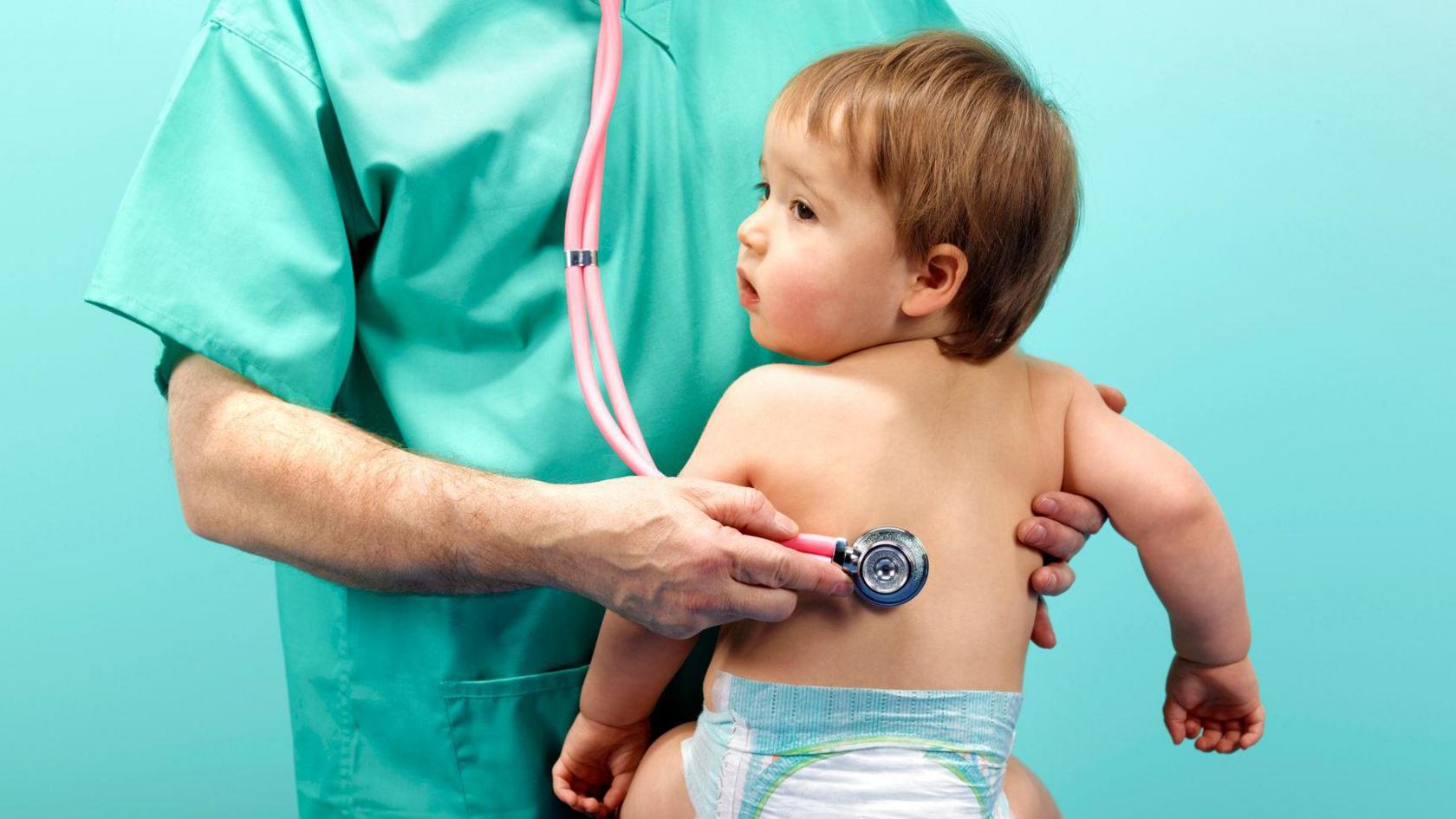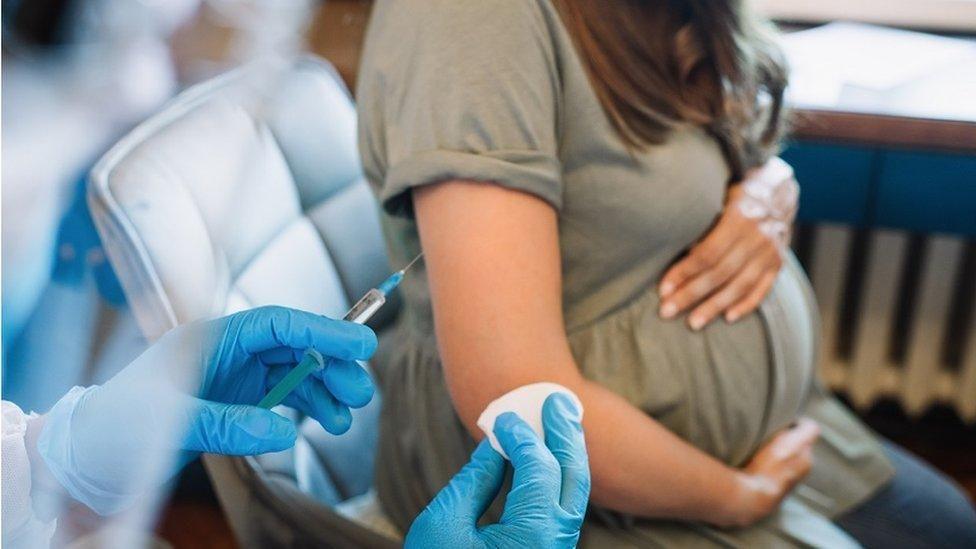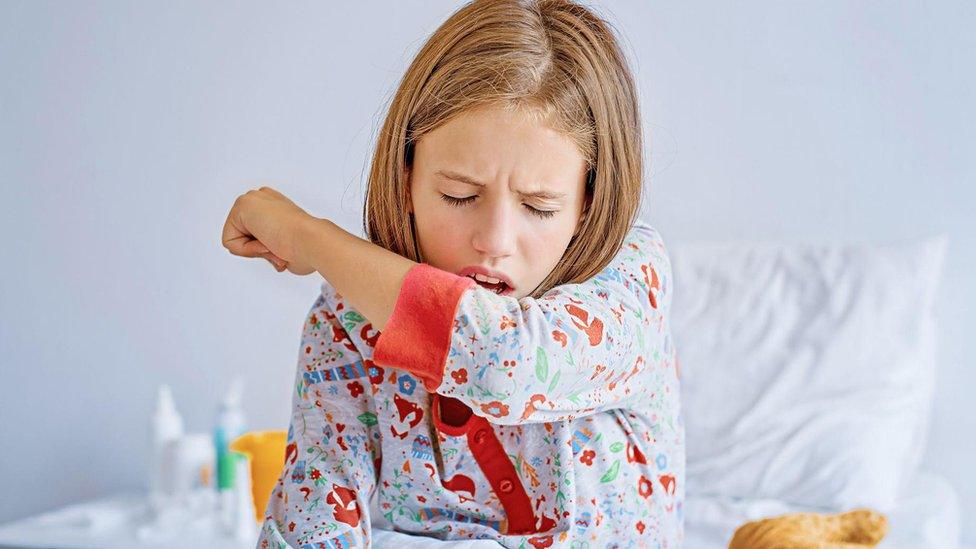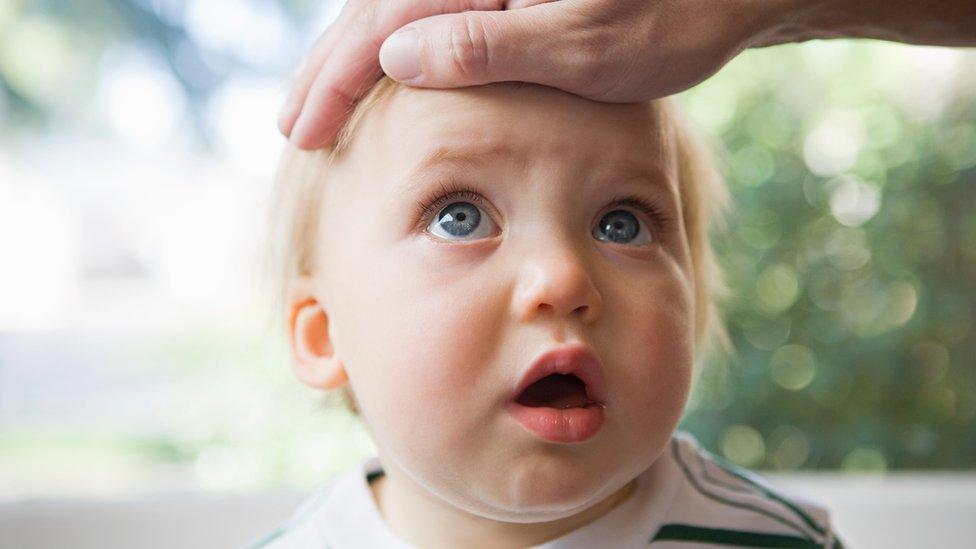Whooping cough vaccine encouraged as cases rise

Whooping cough is a highly contagious and sometimes serious bacterial infection which spreads very easily
- Published
The Public Health Agency (PHA) is urging pregnant women and the parents of young children to get the whooping cough (pertussis) vaccine after a significant rise in cases.
There have been 3,060 confirmed cases of whooping cough so far this year in Northern Ireland, which the PHA say is much higher than in recent years.
Whooping cough, external is a highly contagious and sometimes serious bacterial infection which spreads very easily and can make babies and young children in particular very ill.
It can be fatal in young babies or people with health conditions.
Coughing and choking
Rachel Spiers, Immunisation and Vaccination Programme Manager at the PHA, said the illness "tends to circulate in greater numbers in Northern Ireland every three to four years".
She said this year's increase is the highest the PHA has seen in recent times, with numbers peaking in May 2024.
"Although numbers have fallen it is a timely reminder of the importance of vaccination, external," she said.
"Whooping cough is a disease that can cause long bouts of coughing and choking, which can make it hard to breathe.
"The evidence shows that a pregnant woman who gets the pertussis vaccine reduces the chance her baby getting sick with whooping cough by 90%.
"Babies and young children are at greatest risk of developing more serious disease, so it is very important to take up the offer of the pertussis vaccine," she said.

The PHA is urging pregnant women and the parents of young children to book an appointment for the pertussis vaccine
Pregnant women are offered vaccination, external between 16 and 32 weeks of pregnancy and the pertussis vaccine is also given as part of the childhood vaccination programme to children at 8, 12 and 16 weeks of age and at aged 3 years 4 months.
"If you are unsure if your child is up to date with vaccinations, the easiest way to check is to look at your child's red book or speak to your health visitor or GP practice," said Ms Spiers.
Whooping cough vaccines are available through Health Trust antenatal clinics and at GP practices.
What is whooping cough?
The first signs are similar to a cold, with a runny nose and sore throat.
After about a week, the infection can develop into coughing bouts that last a few minutes and are typically worse at night.
Young babies may make a distinctive "whoop" or have difficulty breathing after a bout of coughing.
The bacterial infections spreads through coughs and sneezes.
People of all ages can catch whooping cough, but it is most serious for young children and babies.
Related topics
- Published9 May 2024

- Published23 January 2024

- Published9 May 2024
